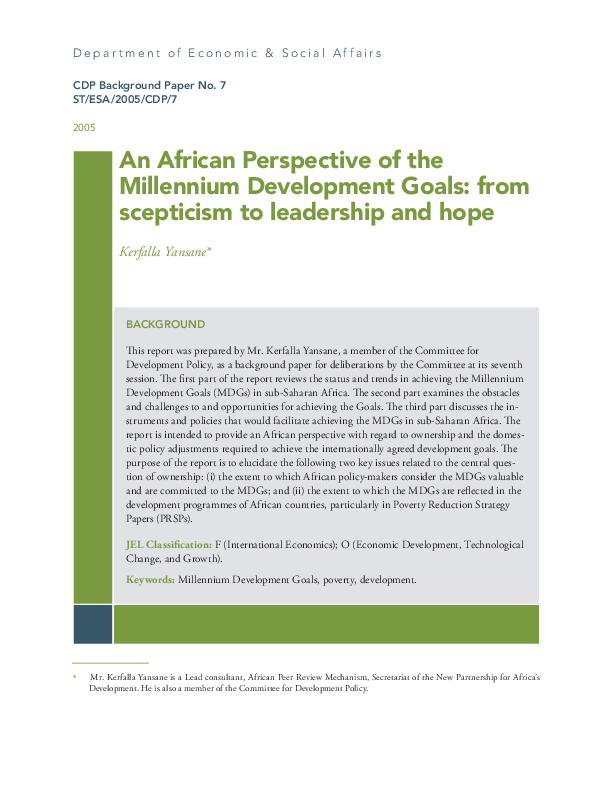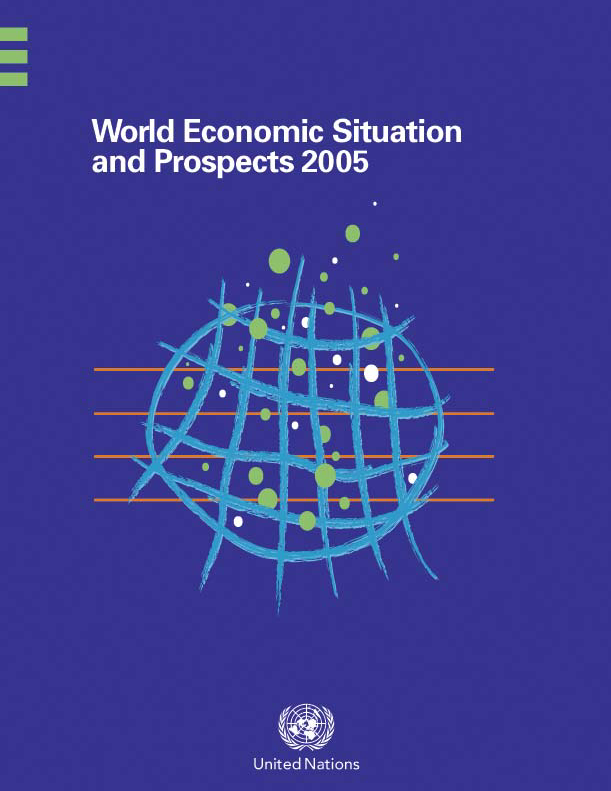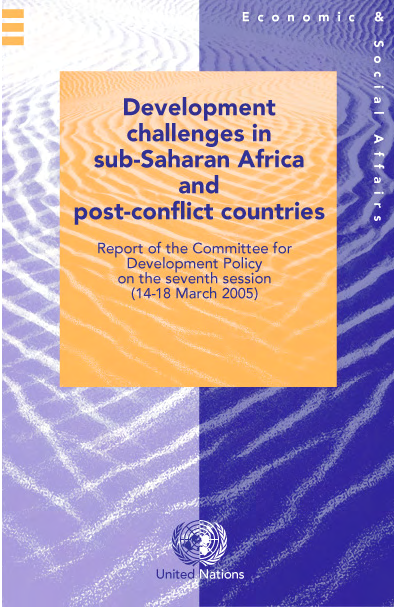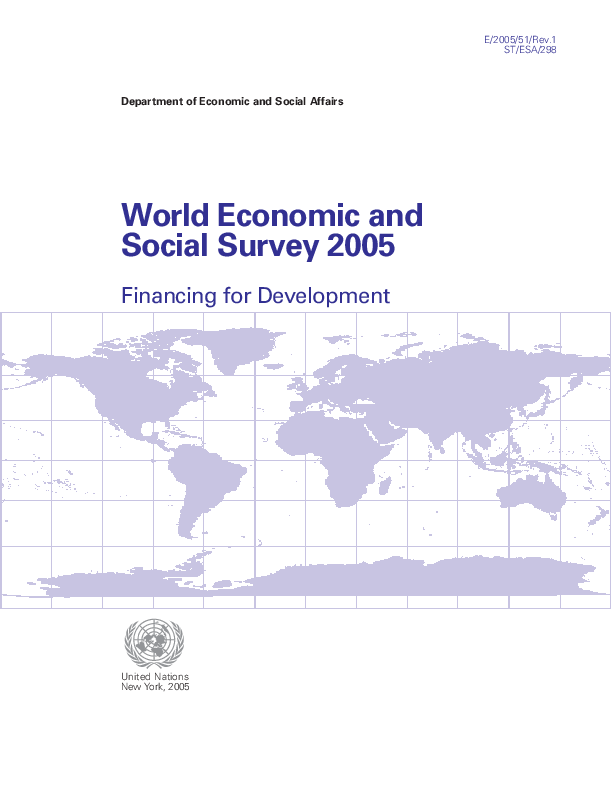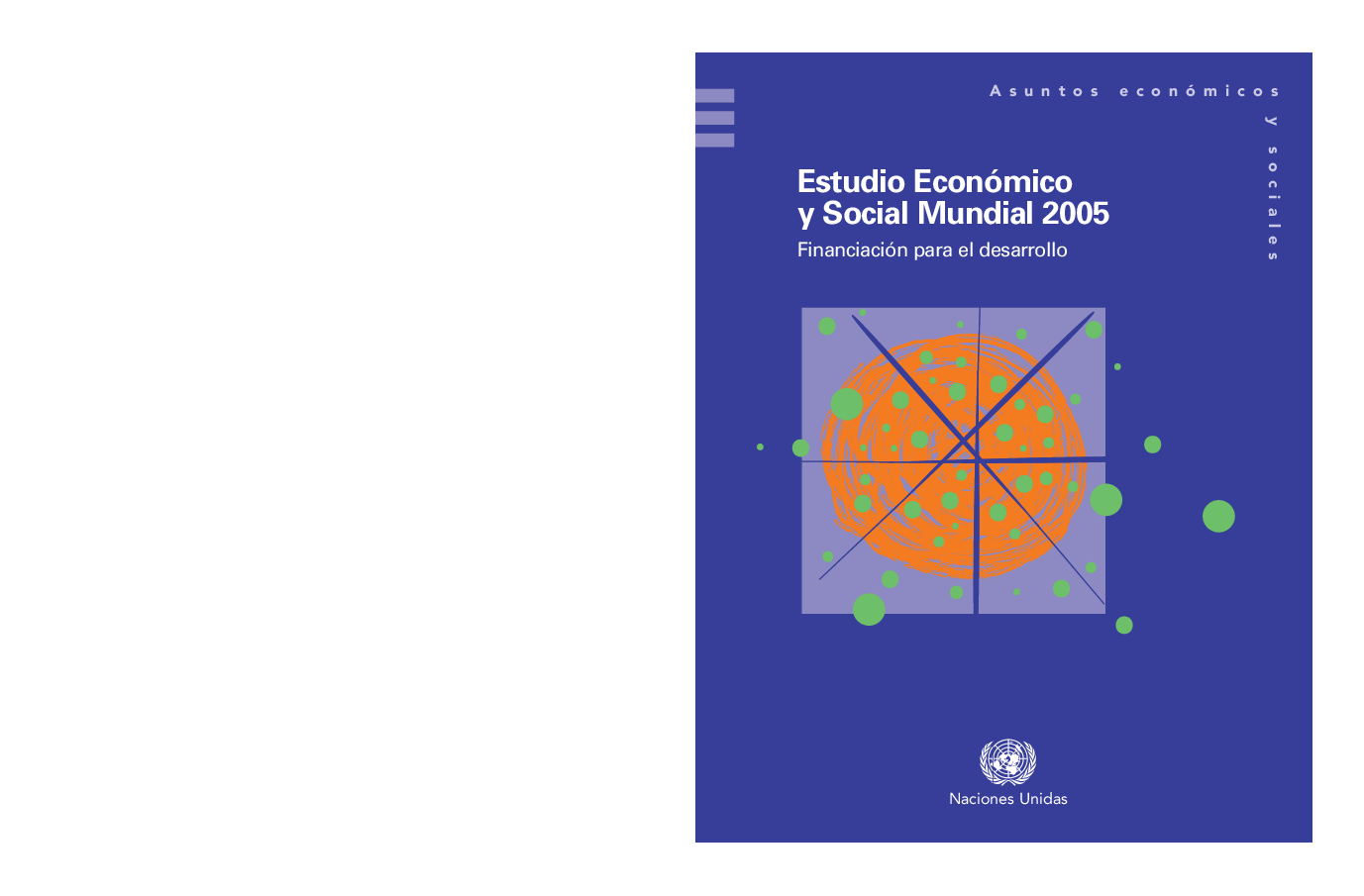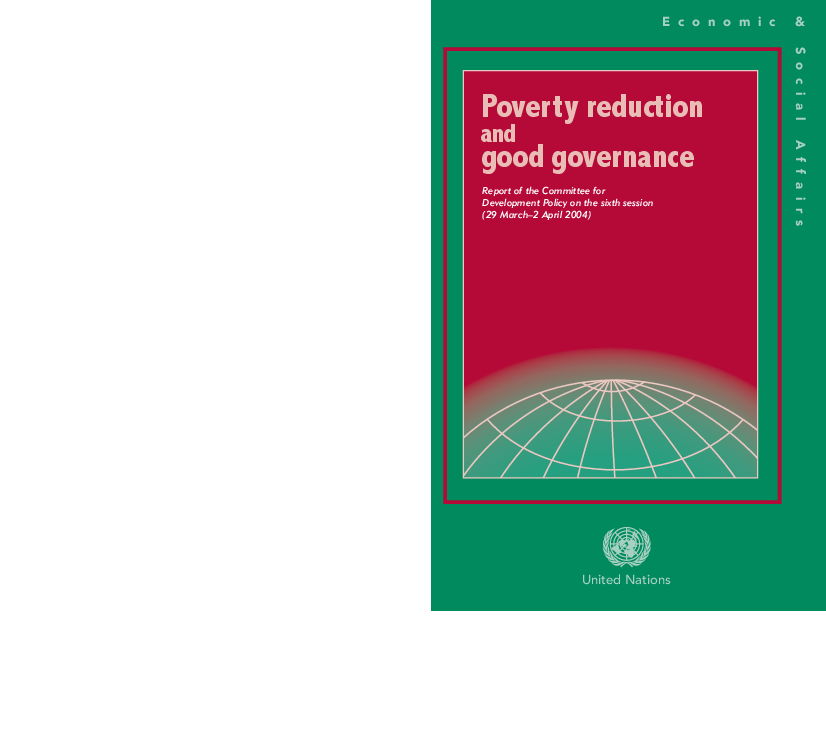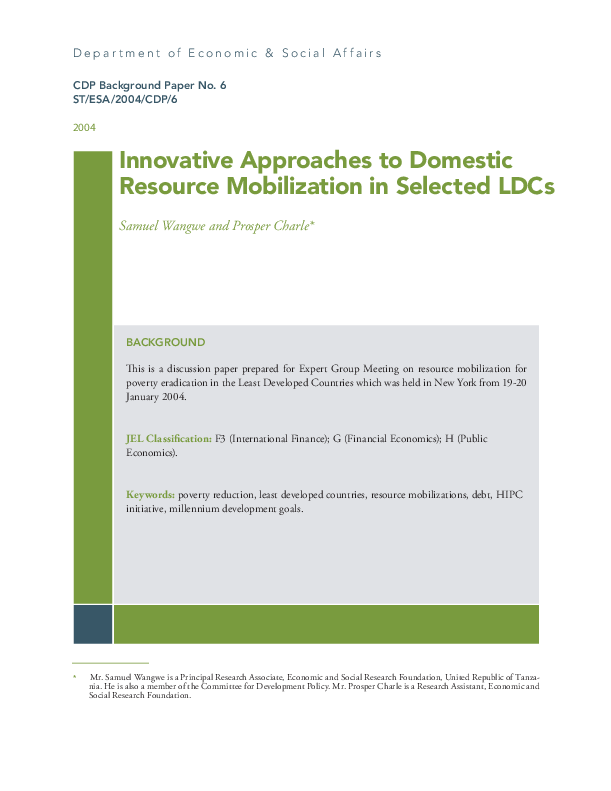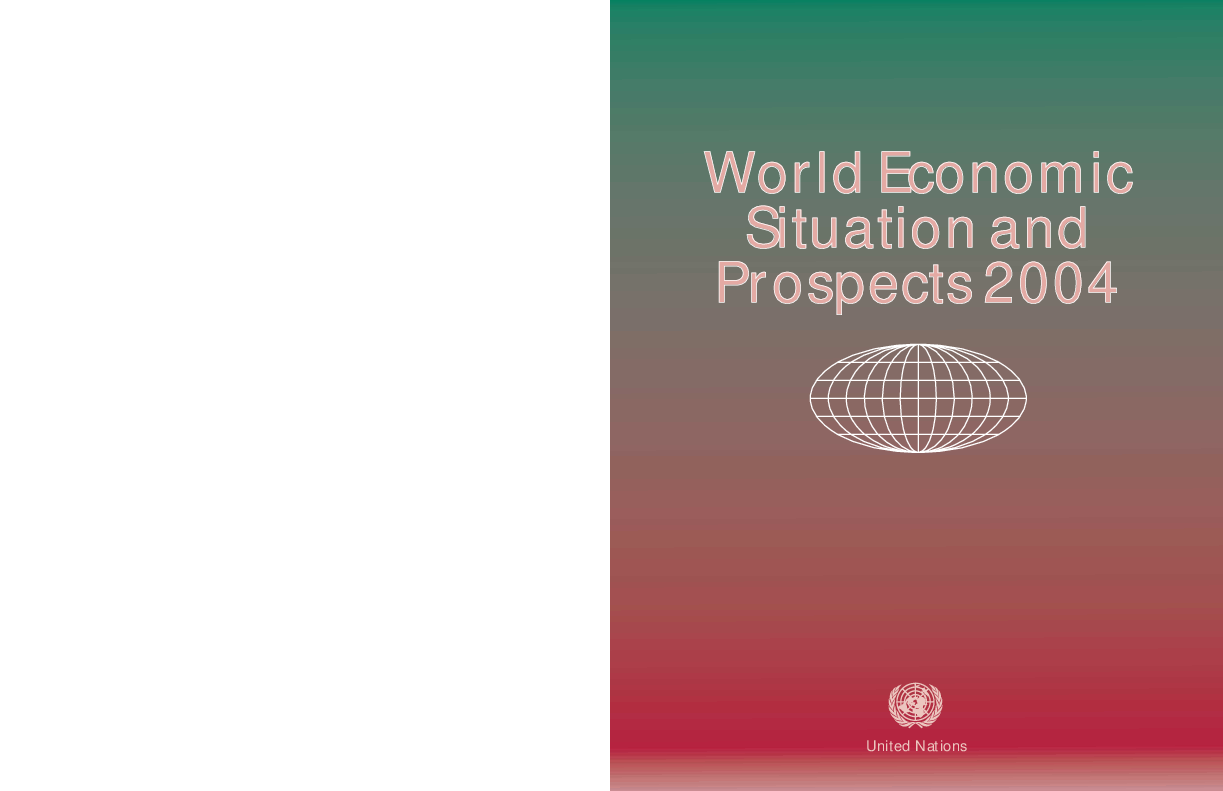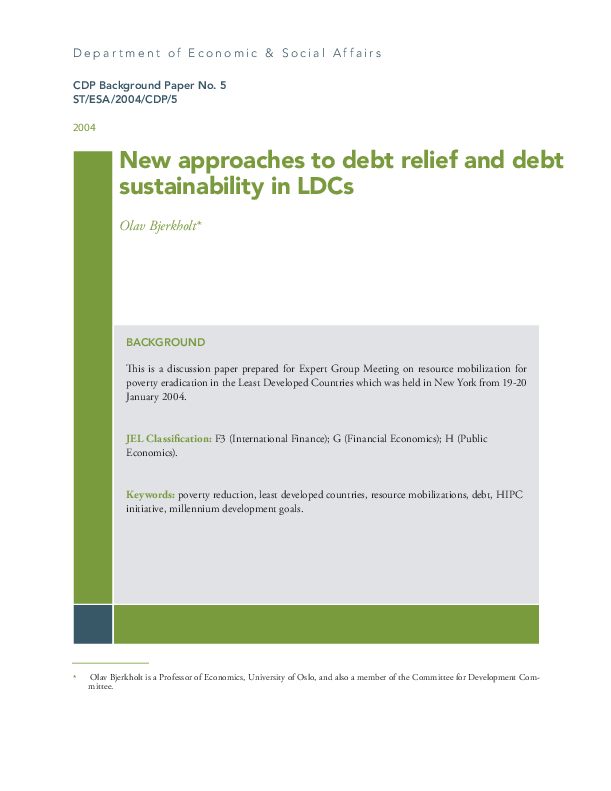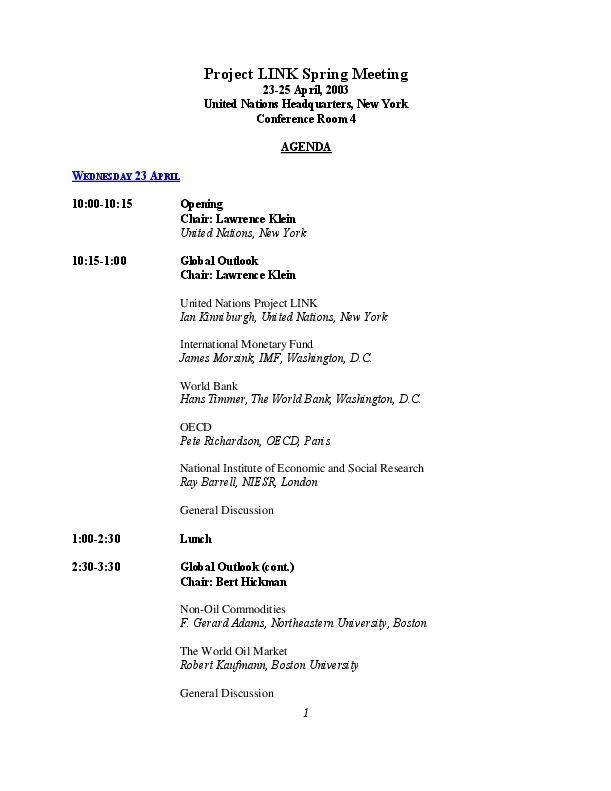Publications
Displaying 901 - 910 of 1085
ISBN 92-1-109149-7 Download Full report: English Français Español Buy copy from UN Publications World Economic and Social Survey 2005
ISBN 92-1-109149-7 Download Full report: English Français Español Buy copy from UN Publications World Economic and Social Survey 2005 Fench
 Welcome to the United Nations
Welcome to the United Nations
